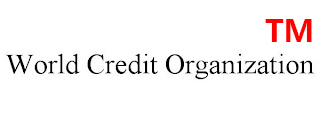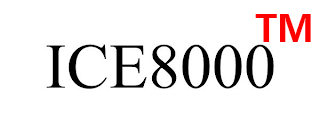About ICE8000™



About the ICE8000™ International Integrity Standard System
(About ICE8000™)
1. What is the ICE8000™
1.1 ICE8000™ is the abbreviation of the International Integrity Standard System and is also a trademark of the World Credit Organization. “ICE” stands for “INTERNATIONAL CREDIBLE ENTERPRISES,” which refers to various types of organizations that are credible, reliable, and possess a pioneering and progressive spirit under international standards.ICE8000™ standards were established in 2002. As of 2025, the ICE8000™ standard system comprises a total of 217 standards, containing approximately 500,000 Chinese characters.
1.2 The ICE8000™ International Integrity Standard System (the “ICE8000™ Integrity Standards”) is also known as the ICE8000™ International Credit Standard System (the “ICE8000™ Credit Standards”), and is commonly abbreviated as the ICE8000™ Standards or the ICE8000™ System.
1.3 The ICE8000™ International Credit Standard System is a globally applicable credit standard formulated by the World Credit Organization (WCO). It is also a universal moral standard for humanity developed by Chinese scholars and is gradually gaining widespread recognition in many countries and regions. The ICE8000™ International Credit Standard System provides specific definitions and standards for universal human moral values such as integrity, credibility, honesty, loyalty, kindness, fairness, and justice. The system is comprehensive in content and broad in scope, covering almost all fields related to integrity worldwide, including integrity culture, credit evaluation, credit supervision, dissemination of credit information, qualification certification of credit professionals, integrity management, dispute resolution, and related standards. The ICE8000™ International Credit Standard System takes integrity as its fundamental requirement and pursues and safeguards integrity through just procedures.
2. What problems can ICE8000™ help people solve, and what is its social value?
2.1 The ICE8000™ standards may be regarded as a systematic methodology and set of tools for analyzing and solving problems. The issues they address include, but are not limited to, the following:
(1) Difficulties in safeguarding rights after being defrauded or subjected to illegal infringement;
(2) Concerns about being defrauded or illegally harmed;
(3) Situations in which an individual is genuinely honest, yet is not trusted by others;
(4) Cases where business owners are genuinely honest, but due to imperfect management systems, are unable to ensure the integrity of the enterprise and its successors;
(5) Situations in which product quality exceeds that of industry peers, but there is a lack of a credible and trusted recommendation mechanism;
(6) The absence of a fair and efficient dispute resolution mechanism after disputes arise, especially when the opposing party has significant influence or background.
2.2 Because ICE8000™ addresses practical problems by identifying moral risks and promoting moral awareness and conscience, it not only helps resolve specific issues faced by individuals and organizations, but also advances the understanding and observance of universal moral values. In doing so, it promotes social integrity, reduces transaction costs, enhances human welfare, and fosters integrity and progress in human society.
3. The ICE8000™ International Credit Standard System consists of the following interdependent subsystems
3.1 International Credit Sanction System, which mainly includes standards for identifying dishonest conduct, associated dishonest conduct, conduct supporting wrongdoing, conduct violating moral bottom lines, and conduct violating social responsibility bottom lines; standards for determining credit responsibility attribution; and credit sanction standards such as internal complaints, public complaints, credit warnings, internal disclosures, public disclosures, and joint disclosures (credit wanted notices).
3.2 International Credit Incentive System, which mainly includes standards for identifying honest conduct, associated honest conduct, conduct supporting creditworthiness, morally exemplary conduct, and conduct actively fulfilling social responsibility; standards for determining entitlement to credit incentives; standards for commendation information and honor listings; and standards for awarding integrity honor titles.
3.3 International Integrity Management System, which mainly includes institutional standards for integrity management; standards for building integrity culture; corporate governance standards for enterprises and other organizations; and due diligence standards for employees, shareholders, executives, and other relevant personnel.
3.4 International Credit Supervision System, which mainly includes standards for integrity record management; integrity scoring standards; integrity ranking standards; certification and supervision standards for integrity organizations, integrity individuals, and integrity regions; and credit rating standards.
3.5 International Credit Protection System, which mainly includes standards for the registration, filing, and protection of creditor’s rights, equity, intellectual property, and intangible assets.
3.6 International Credit Assurance System, which mainly includes standards for the certification and supervision of credit practitioners; certification and supervision standards for professional credit institutions; certification and supervision standards for integrity management academic degrees and degree-granting institutions; internal governance standards of the World Credit Organization (WCO); and standards for dispute mediation, arbitration, adjudication, conferences, and elections.
4. The ICE8000™ International Credit Standard System is a social credit system
The ICE8000™ System contains a rich body of standards, encompassing not only quality standards for various credit services but also all aspects of a social credit system. Any country or region that effectively implements the ICE8000™ System can rapidly establish a comprehensive social credit system.
5. The ICE8000™ International Credit Standard System has international universality and legitimacy
The ICE8000™ International Credit Standard System has international universality and legitimacy and can be generally applied in all market-economy countries. The reasons for its universality and legitimacy are as follows:
5.1 The primary legal foundations for the formulation, application, and implementation of the ICE8000™ System are the principle of integrity, the principle of freedom of contract, the principle of public order and good morals, and the principle of freedom of expression. These four principles are fundamental legal principles observed by market-economy countries. Therefore, the ICE8000™ System can be widely applied in all market-economy countries without causing fundamental conflicts with domestic laws.
5.2 The ICE8000™ System is designed in accordance with universal human value principles and internationally accepted practices, and actively promotes universal values such as integrity. For example, it is designed and operated based on principles of freedom, openness, fairness, justice, and supervision, consistently reflecting and safeguarding the value of freedom.
6. Historical background and original intent of the ICE8000™ International Credit Standard System
6.1 Since the late 20th century, significant changes have taken place worldwide:
(1) The super-scaling of corporations and the separation of ownership and management have led to frequent incidents of managers deceiving investors, raising concerns over the credibility of large enterprises;
(2) Economic globalization has increased international interactions and trade, with growing import and export activities by small and medium-sized enterprises. However, due to insufficient transaction information and limited rights-protection capabilities, large numbers of international trade fraud cases targeting SMEs have emerged, increasing cross-border transaction risks;
(3) The rise of the Internet has created opportunities across industries, while also being accompanied by various integrity-related challenges.
6.2 Against this historical backdrop, the World Credit Organization (WCO), with the mission of promoting social integrity, reducing transaction costs, and enhancing human welfare, began to study how to ensure organizations refrain from dishonest conduct; how to establish mechanisms for identifying dishonest conduct; how to create stricter sanction mechanisms for dishonesty; how to rapidly build effective social credit systems in developing countries; and how to establish an international social credit system so that sanctions for dishonesty are not constrained by a single country’s political or economic conditions. These considerations constitute the original intent behind the creation of the ICE8000™ International Credit Standard System.
Tips: Introduction to Standards Knowledge
Internationally, apart from mandatory standards formulated by government authorities in accordance with law (which are gradually decreasing), national authorities generally do not review, approve, or endorse standards formulated by social organizations. Instead, such standards are directly tested by society and the market. Organizations that formulate standards are often composed of outstanding industry professionals or institutions with a strong sense of social responsibility and a commitment to public welfare. Among the more than 270 standards currently popular worldwide, nearly all are developed by non-governmental social organizations. The authority of these standards derives from their scientific rigor and advancement, rather than from governmental endorsement or compulsory enforcement.
Moreover, these standard-setting social organizations do not themselves promote the standards. Promotion is carried out by other market participants, while the standard setters focus solely on improving the standards, supervising their proper implementation, and maintaining fair competition among promoters. For example, the ISO 9000 International Quality Management System Standards are developed by the International Organization for Standardization and then promoted by authorized quality management consulting firms in various countries.
The ICE8000™ International Credit Standard System standards are formulated by the World Credit Organization (WCO) and are promoted by accredited credit companies, consulting firms, and other organizations or individuals recognized by the WCO.


